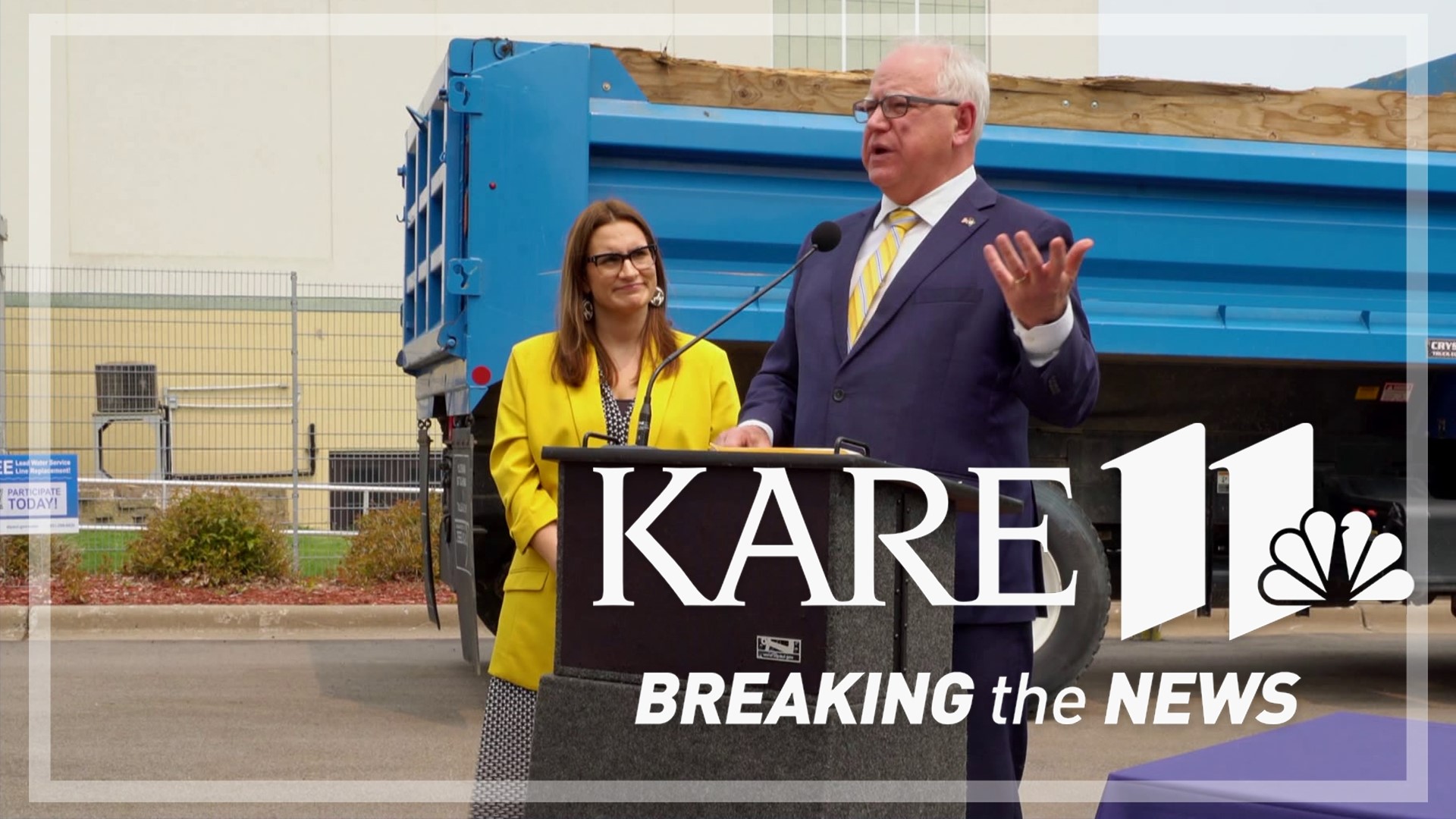ST PAUL, Minn. — With Minnesota's 2023 legislative session just days away from wrapping up, there are some major pieces of legislation that will soon be heading to Governor Tim Walz.
On Tuesday, after signing a bill that provides $240 million to remove and replace lead pipes across the state, Walz said he is eager to sign several other big pieces of legislation.
"I think, when the dust settles on this, that there is little doubt that this is probably the most productive session in Minnesota history," Walz said. "I would also make the case that it is probably the most supportive of middle-class and working people that we've ever seen, to improve their quality of life."
The governor said he is excited to sign a bill that will legalize recreational marijuana. He also touted the public safety budget, which features long-sought gun safety legislation, including expanded background checks and a red flag law that would ensure that Minnesota joins roughly 20 other states in taking such steps.
"We couldn't even get a hearing for four years," Walz said. "I find it absolutely just stunning to me the people who voted against this said, 'Well, this hasn't been vetted. It's been vetted.'"
There are also still a lot of big question marks regarding remaining legislation with just days left to get it all done.
The work includes a massive tax bill. Despite the negotiation that remains, Walz says he is confident that legislators are set to expand the child tax credit, though a final dollar amount and income thresholds for families are still being discussed.
The governor also says he has a deal to send $250 rebate checks to individuals. The checks would likely go to individuals making up to $75,000 per year. The rebate amount could be more than double for couples who make up to $150,000 per year.
"It will include children, each member of your family — so two parents and two children, that's $1,000 that they'll get back on the rebate side," Walz said.
The governor admits that's far less than the so-called Walz checks he originally called for.
"It will be a little smaller than we wanted, but I think there's other things we got for that trade that will help families," he said. "The Child Tax Credit will clearly be, I think, the most felt that any state has done around taxes, maybe in a generation. That's going to happen here in Minnesota, and so they're getting it. They'll work it out."
One of the more controversial items still remaining is the status of a nurse staffing bill that KARE 11 has reported on at length. The Keeping Nurses at the Bedside Act, which would create committees of executives, nurses and other leaders to decide staffing levels, was thrown into uncertainty last week when the Mayo Clinic threatened to move billions of investment out of state if the bill passes.
In recent days, legislators announced that they were working on a compromise that would essentially carve out an exception that would apply only to the Mayo Clinic Hospital in Rochester.
That deal received pushback from nurses, in addition to Minnesota hospitals, who say the exception could hurt them both.
"I have said very clearly, I represented Mayo Clinic area for 12 years in Congress. They are a unique medical institution because of their teaching side of things and their global reach," Walz said. "I have said, and spoken very clearly on that, that we need to make accommodations on that, but I am open for what I believe is not an 'us versus them' — nurses versus health care — side of things, but there's a compromise to make it work. I think that's what's happening."
When asked about concerns hospitals, specifically, have surrounding a potential exception for Mayo Clinic, Walz said:
"What I will tell all folks involved in this, and I have face-to-face, that we're in this together. Our primary responsibility is delivering high quality health care to all corners of Minnesota. There are valid concerns on both sides of this discussion. I believe there is a working solution to put this in place to make sure nurses have a voice at the table to make this happen, but the healh care systems understand that there's unique situations. So, I think they are still trying to work that out."
As of Monday, that work on a compromise only included the Mayo Clinic.
One item that the governor doesn't expect to cross his desk involves legalized sports betting. He said he would have considered a bill, but said that it appears unlikely to happen in the time remaining this session.
Watch more Breaking The News:
Watch all of the latest stories from Breaking The News in our YouTube playlist:

